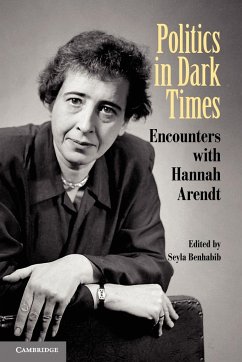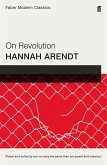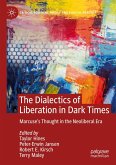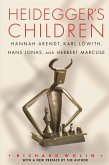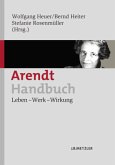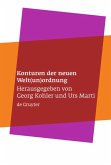This outstanding collection of essays explores Hannah Arendt's thought against the background of recent world-political events unfolding since September 11, 2001, and engages in a contentious dialogue with one of the greatest political thinkers of the past century, with the conviction that she remains one of our contemporaries. Themes such as moral and political equality, action, judgment and freedom are re-evaluated with fresh insights by a group of thinkers who are themselves well known for their original contributions to political thought. Other essays focus on novel and little-discussed themes in the literature by highlighting Arendt's views of sovereignty, international law and genocide, nuclear weapons and revolutions, imperialism and Eurocentrism, and her contrasting images of Europe and America. Each essay displays not only superb Arendt scholarship but also stylistic flair and analytical tenacity.
Hinweis: Dieser Artikel kann nur an eine deutsche Lieferadresse ausgeliefert werden.
Hinweis: Dieser Artikel kann nur an eine deutsche Lieferadresse ausgeliefert werden.
"Dark times demand clear understanding, not false optimism. Few thinkers offer greater resources than Hannah Arendt for illuminating the darkness. The essays in this fine collection bring out both the clear foundations and the sometimes ambiguous nuances of Arendt's thought. They help us think better in a troubled era that desperately needs careful, historically-informed, and hard-headed analysis."
-Craig Calhoun, Social Science Research Council and New York University
-Craig Calhoun, Social Science Research Council and New York University

